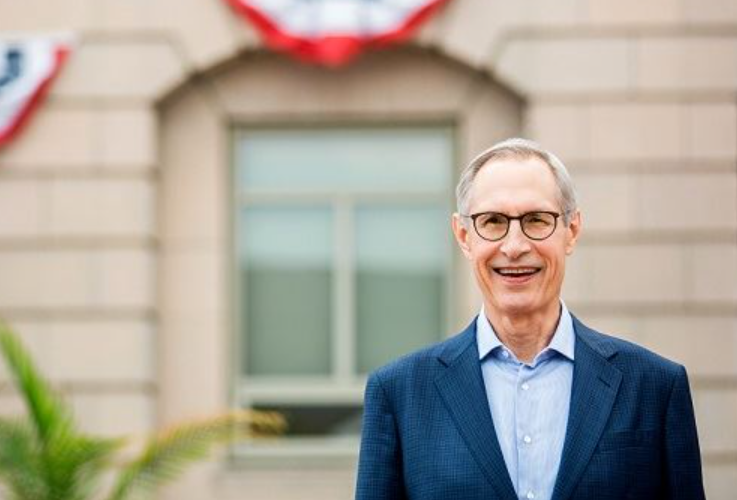Since the outset of Mayor Donchess’s leadership, our City’s political climate has shifted to destabilize our democracy. A persistent pattern has emerged, with elected officials, appointed or endorsed by the Mayor, making statements that marginalize concerned citizens, question their motives, and dismiss their input. This ongoing trend chills free speech, erodes public trust, and weakens the integrity of our democratic processes.
When the message from leadership is that dissent equals disloyalty, fewer residents feel safe to speak up—and that’s dangerous for any democratic society.
Labeling Concerned Citizens as ‘Mayor Haters’
In the lead-up to the public budget hearing, Ward 8 Alderman Derek Thibeault circulated a newsletter accusing residents who raised budget questions of being “mayor haters.” That’s not public discourse—it’s public shaming.
This kind of rhetoric trivializes legitimate concerns and discourages civic participation. When citizens fear being labeled or ridiculed for engaging in the democratic process, fewer are willing to speak out. The result? A near-empty room at the budget hearing, with just one resident rising to ask questions. Fear replaces participation. That’s not democracy—it’s silence by design.
Ethics Derailed: When Oversight Is Subordinated to Politics
Using the same tone of dismissal, at a recent Ethics Committee meeting, the chairman, an attorney appointed by the Mayor, concluded that a complaint was merely a ‘political’ maneuver rather than a legitimate ethical issue. This type of dismissal undermines the integrity of oversight mechanisms meant to hold officials accountable. It sends a message that ethical concerns will not be taken seriously if they clash with political interests, further discouraging public involvement. Ethics Committees are supposed to be neutral watchdogs, not political shields.
Bias at the Bench: The Breakdown of Neutral Oversight
During the same Ethics Committee session, the chairman addressed the observing public with sarcastic disdain, saying things like “your little group” and “you guys are all upset.”
Such language sets a prejudicial tone and is wholly inappropriate for a quasi-judicial body tasked with ensuring fairness, impartiality, and public trust. These comments risk creating the appearance of impropriety and personal animus, thereby undermining the legitimacy and integrity of the committee’s work. When those in power display hostility to even passive engagement, it signals bias, not balance.
Framing Feedback as “Disloyalty”
In a public meeting about placing barriers downtown to reduce traffic lanes, a city director, aligned with the mayor, labeled those opposing the change as out to oppose the ‘mayor’s initiative.’ Residents weren’t opposing a personality—they were voicing concerns about safety, accessibility, and downtown access. But by reducing feedback to a political attack, officials sidestep the issues and paint critics as enemies. That’s not how good policy is made.
The Consequences of Politicizing Public Input – Chilling Citizens
Yes, the government is inherently political. But not all public input is partisan. Treating every concern as a political attack doesn’t just dismiss the message—it discourages the messenger. And over time, that drives citizens away from the process entirely.
When residents feel unwelcome or attacked, they stop showing up. Civic dialogue dies—not with a bang, but with a quiet absence.
Valuing Dissent Strengthens Democracy
To foster a healthier democratic environment, new leaders are needed who respect and consider all forms of public input, regardless of political affiliation and tone. Dismissing voices or labeling dissent as political, disrespects participants and impoverishes decision-making. New leadership can create a civic culture where every voice is valued and every concern is addressed on its merits, rather than its political convenience.
The public square belongs to everyone. And every voice—whether aligned with or against city leadership—deserves to be heard without fear of ridicule, dismissal, shaming, or political branding. Let’s reopen the “chamber” to the people it’s meant to serve.
Agree? Disagree? Submit Op-Eds to steve@granitegrok.com – We want to hear from you, too!
